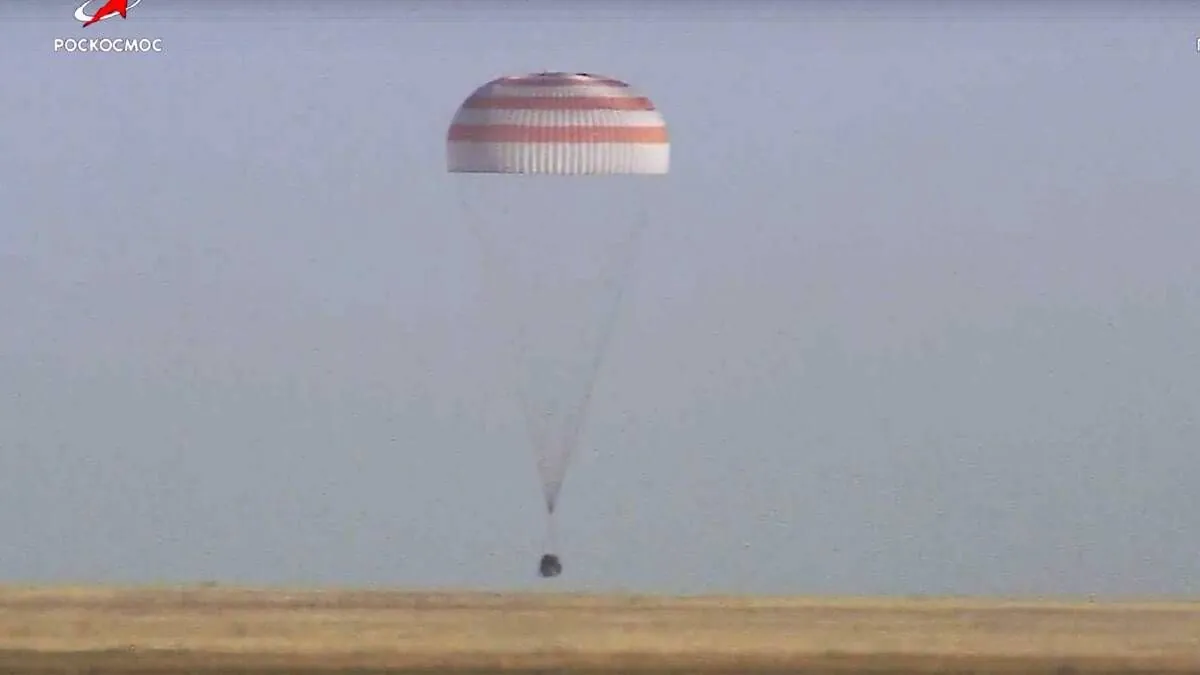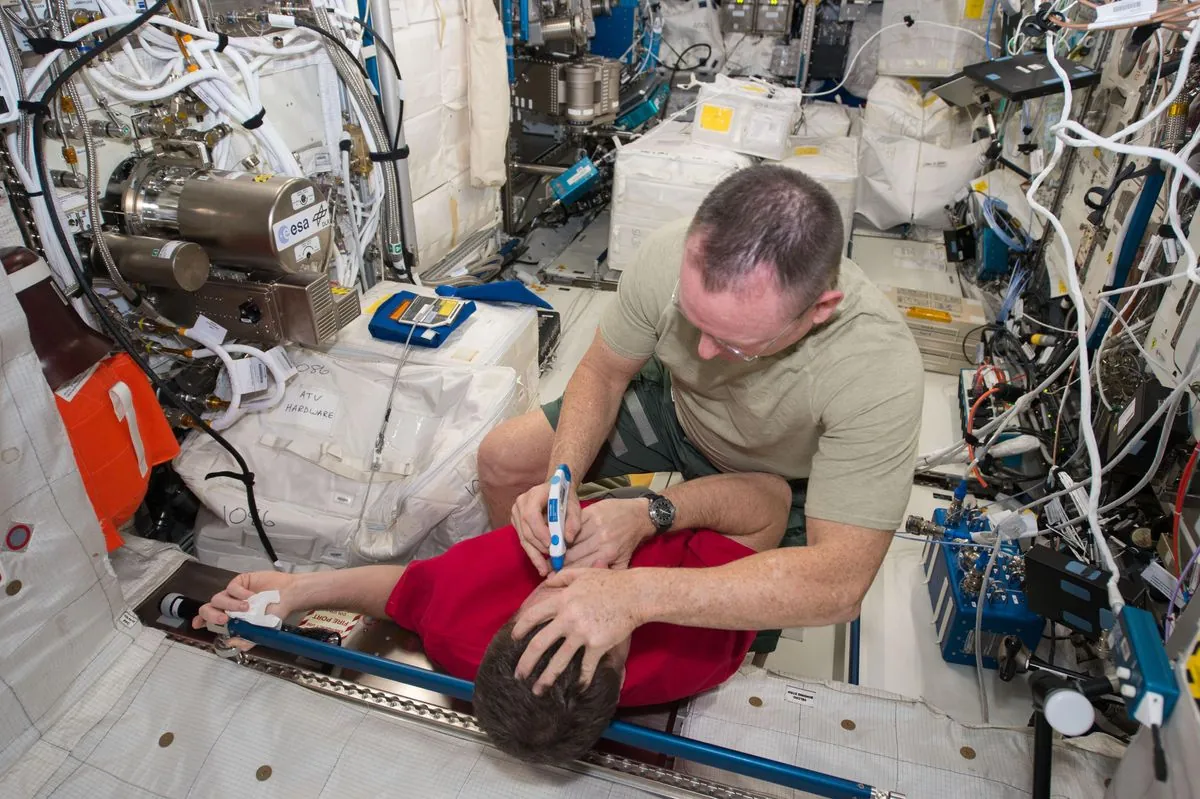Record-Breaking Space Mission Ends with Safe Return to Earth
Three astronauts, including two record-breakers, safely landed in Kazakhstan after an extended stay on the International Space Station. The mission highlights ongoing challenges in space exploration.

A Soyuz capsule successfully touched down in Kazakhstan on September 23, 2024, marking the conclusion of a historic space mission. The spacecraft carried three crew members from the International Space Station (ISS): two Russian cosmonauts, Oleg Kononenko and Nikolai Chub, and American astronaut Tracy Dyson.
Kononenko and Chub completed an unprecedented 374-day stay aboard the ISS, surpassing previous endurance records. Their extended mission contributes to the ongoing research on long-term human presence in space, crucial for future deep space exploration. Dyson returned after a six-month assignment, aligning with typical ISS expedition durations.
The landing process proceeded smoothly, with the capsule descending under a parachute at approximately 7.2 meters per second. Small retro-rockets fired moments before touchdown to ensure a gentle landing on the Kazakh steppe. Post-landing protocols included immediate medical examinations to assess the crew's health after prolonged exposure to microgravity.

The ISS, orbiting Earth at an average altitude of 400 kilometers, continues its operations with eight remaining crew members. Among them are American astronauts Butch Wilmore and Suni Williams, whose return has been delayed due to issues with Boeing's Starliner capsule. NASA deemed it unsafe to use the Starliner for their return, necessitating an extended stay until a SpaceX mission can bring them home in 2025.
This mission highlights the complexities and challenges of space exploration. The ISS, the largest artificial object in space, serves as a crucial platform for scientific research, hosting over 3,000 experiments to date. Its pressurized volume of 916 cubic meters provides ample space for diverse studies in microgravity.
The international collaboration on the ISS, involving five space agencies, demonstrates the power of global cooperation in advancing space exploration. With over 240 individuals from 19 countries having visited the station, it stands as a testament to human achievement and the pursuit of knowledge beyond Earth's boundaries.
As the ISS program continues until at least 2030, it will undoubtedly contribute further to our understanding of long-duration spaceflight and its effects on human physiology. The station's advanced systems, including water recycling that reclaims 93% of onboard water, showcase the innovations necessary for sustainable space habitation.
This latest mission's success reaffirms the progress made in space exploration while also highlighting the ongoing challenges faced by space agencies worldwide. As we look to the future, the lessons learned from these extended stays on the ISS will be invaluable in planning missions to more distant destinations in our solar system.


































